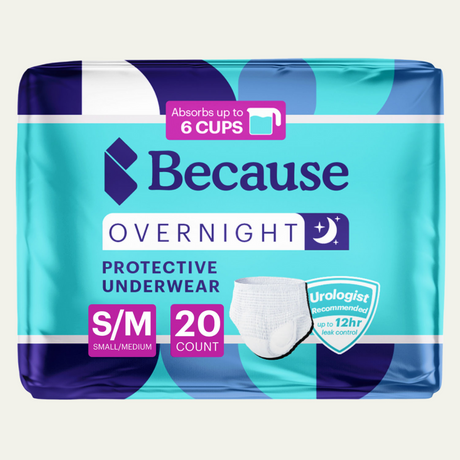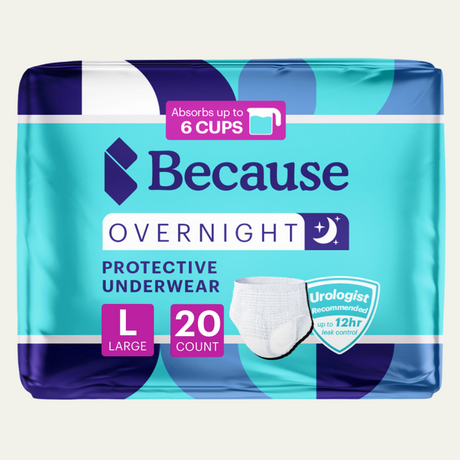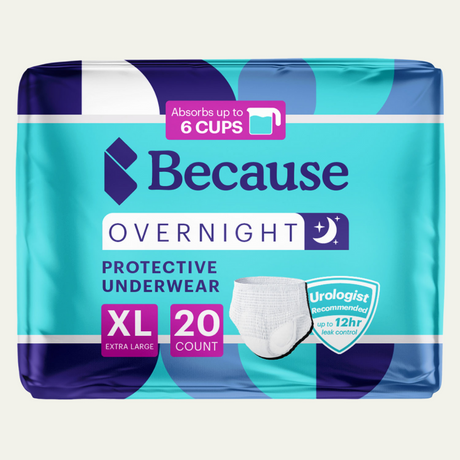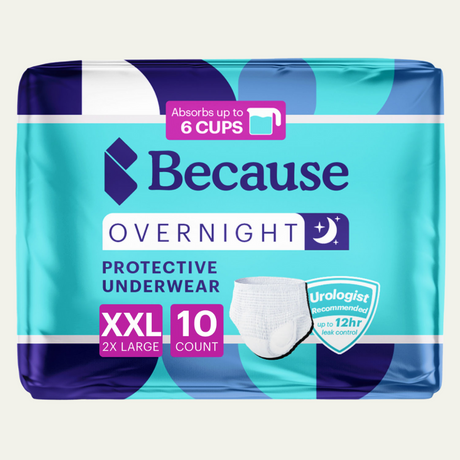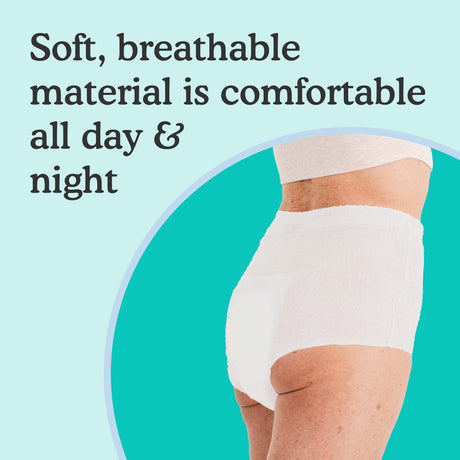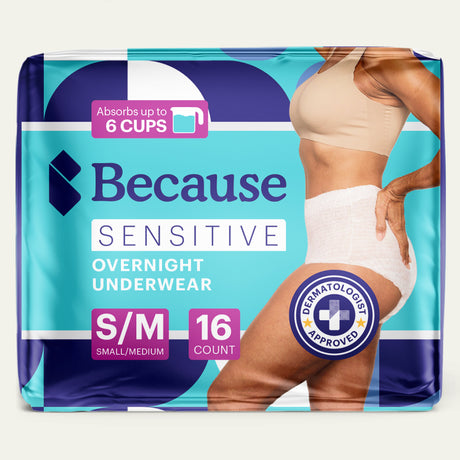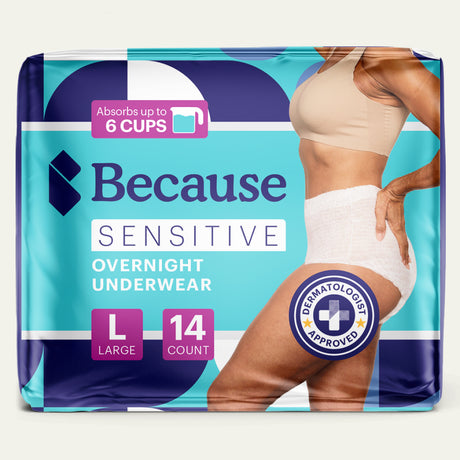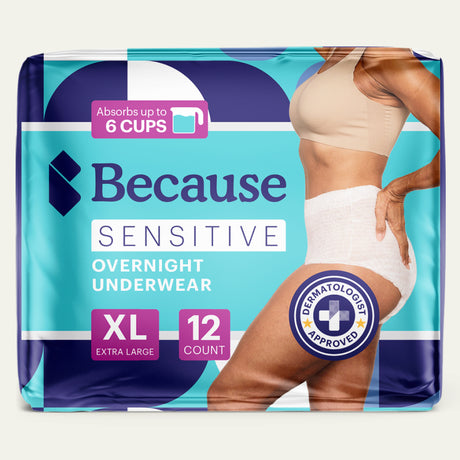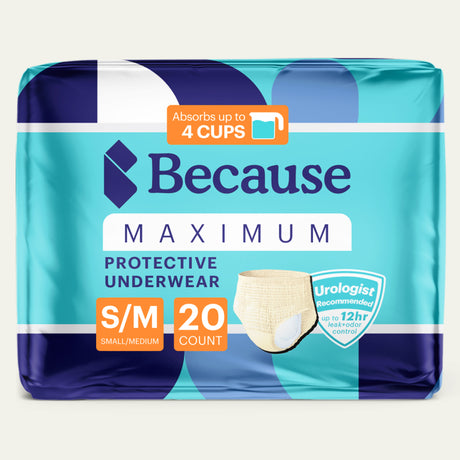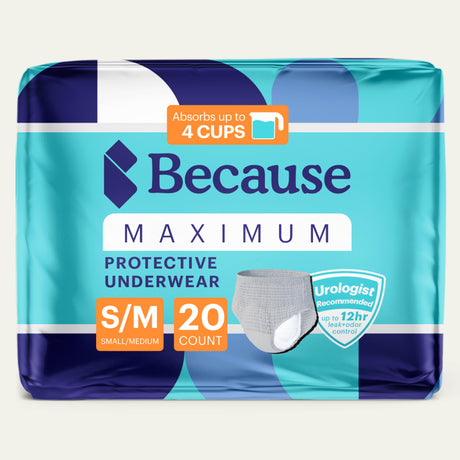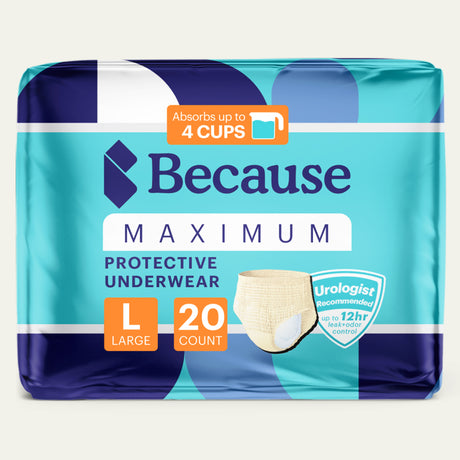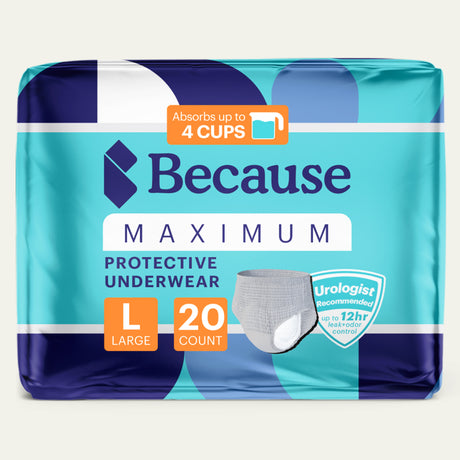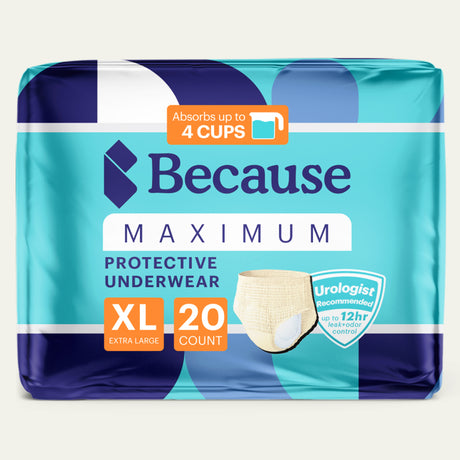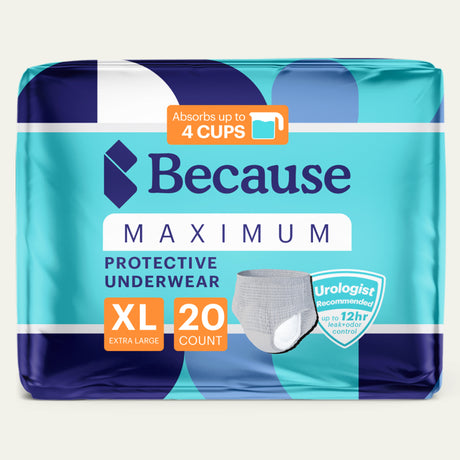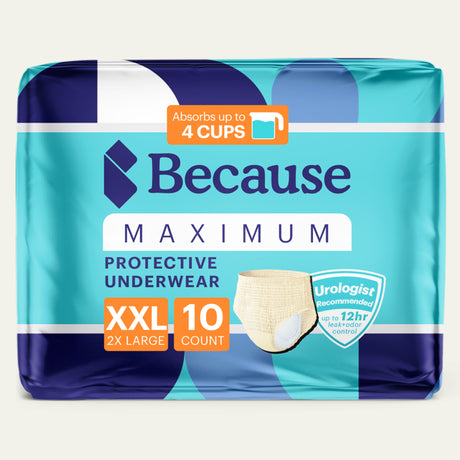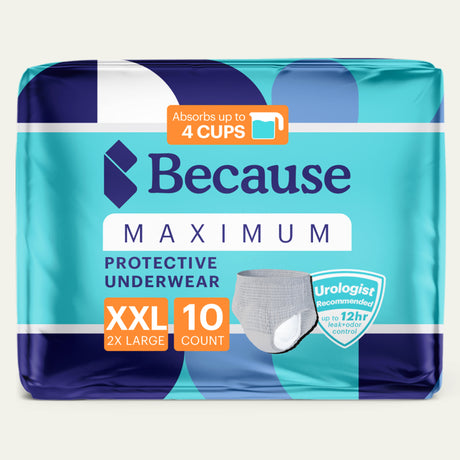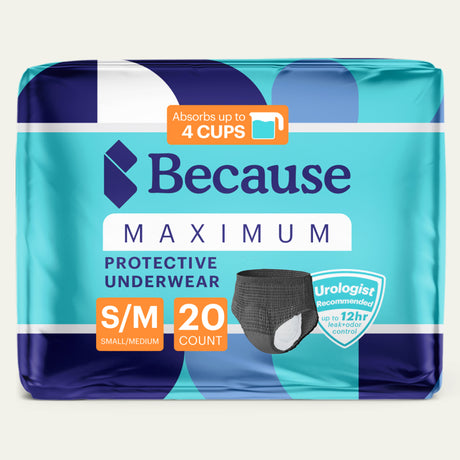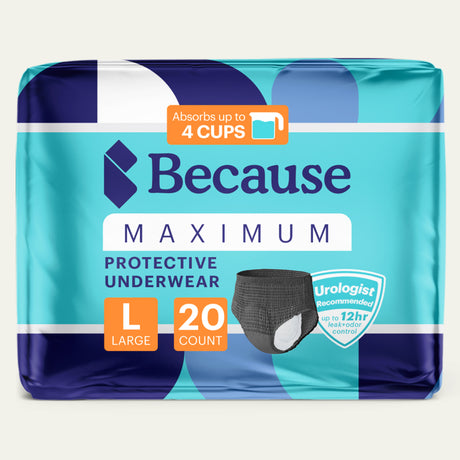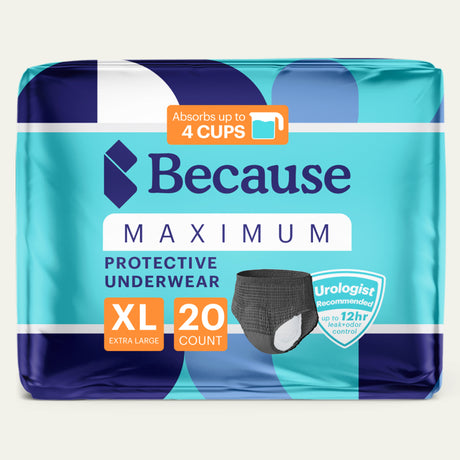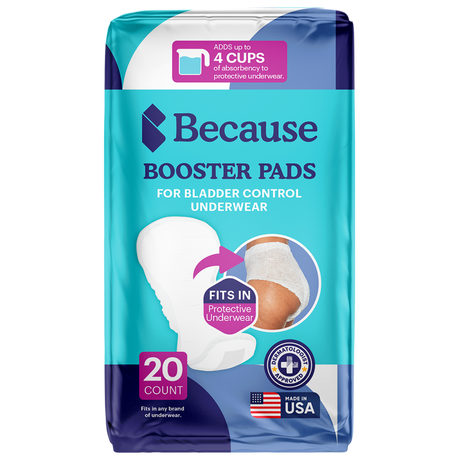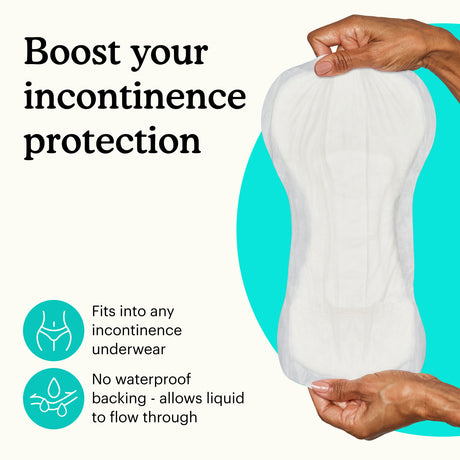A good night’s sleep is important for overall health and well-being. Unfortunately, millions of people lose sleep on a regular basis due to peeing too much at night. If you’re one of them, there are a number of possible reasons why you may pee frequently at night. Read on to learn the potential causes of increased urination at night and what you can do about the issue.
Is Frequent Urination at Night Common?
Frequent urination at night is a common problem. In fact, more than half of older adults experience it. For these individuals, waking up in the middle of the night frequently to urinate can lead to a lack of sleep and feeling tired the next day. Some people also experience bedwetting (nocturnal enuresis) due to the urgent need to urinate and/or an inability to quickly get out of bed and to the bathroom in time.
How Many Times Is It Normal to Urinate at Night?
Generally, it is normal to urinate once or not at all during the night. When someone wakes up a greater number of times, health care providers may want to run tests to determine the root cause and rule out any medical problems that could be contributing to frequent urination at night.
What Is Nocturia?
Nocturia is when you wake up more than once during the night to urinate. The urinary problem disrupts the sleep cycle. Over time, sleep disorders like nocturia can increase the risk for high blood pressure, obesity, diabetes, stroke, kidney disease, heart disease, and other chronic health conditions.

What Causes Frequent Peeing at Night?
There are many potential causes of nocturia. Some relate to lifestyle and can be easily addressed, while others involve an underlying condition that may require medical treatment. Let’s explore the most common causes of frequent urination at night.
Age-Related Factors
Older adults are more at risk for nocturia than younger people, and the reason for this is complex. Hormonal changes that take place with age contribute to the problem. As testosterone levels in men and estrogen levels in women decline with age, the urinary system may not work as well as it once did. Older men and women may have a low bladder capacity and be unable to store as much urine as a result.
The physical changes associated with aging can also weaken the pelvic floor muscles that support the urinary tract. When these muscles become weak, it can be more difficult to hold urine, and this can raise the risk of experiencing urinary incontinence at night. In addition, older adults may be more likely to suffer from medical conditions that can contribute to frequent peeing at night, which we’ll discuss in a minute.
Urinary Problems
In some cases, the reason for frequent urination at night can be traced back to the following urinary problems:
- Overactive bladder: This condition occurs when the bladder contracts irregularly, leading to urinary symptoms like increased frequency and urgency that can occur at night and during the day.
- Interstitial cystitis: Also called IC, interstitial cystitis is inflammation of the bladder believed to be caused by bladder irritants like spicy foods, alcohol, caffeinated beverages, and artificial sweeteners.
- Nocturnal polyuria: This condition is the overproduction of urine at night due to a medical condition or lifestyle choices like drinking too much liquid close to bedtime.
- Global polyuria: Global polyuria is the medical term for when the body makes too much urine over a 24-hour period. It can stem from many of the same causes as nocturnal polyuria.
- Bladder storage problems: If your bladder is unable to store enough urine due to structural problems, you may get a full bladder more quickly and urinate more frequently as a result. Urinary and bladder obstruction due to kidney stones, benign prostatic hyperplasia (enlarged prostate) in men, and other causes can also contribute to nocturia.
Medical Conditions
Nocturia can be a symptom of an underlying problem with another part of your body. Some medical conditions that are possible causes for nocturia include:
- Congestive heart failure
- Diabetes mellitus
- Edema or swelling in the lower legs
- Enlarged prostate
- Heart disease
- Hypertension
- Multiple sclerosis (MS)
- Obstructive sleep apnea
- Parkinson’s disease
- Pelvic organ prolapse
- Restless leg syndrome
Because nocturia may be the first major symptom of other conditions, it’s important to talk to your primary care doctor if you begin experiencing frequent urination at night.
Certain Medications
Some medications can be the reason for urinary frequency at night because they increase the amount of urine your body produces or change how your body manufactures and stores urine. Drugs that are possible causes of nocturia include:
- Beta-blockers for treating high blood pressure
- Caffeine found in some dietary supplements and in soda, coffee, tea, and energy drinks
- Cardiac glycosides for heart disease
- Demeclocycline, an antibiotic
- Diuretics for treating water retention and high blood pressure
- Lithium, used to treat mental health disorders like bipolar disorder
- Methoxyflurane, a nasal spray pain medication
- Phenytoin, an anti-seizure drug
- Propoxyphene, an opioid pain reliever
In some cases, doctors may be able to prescribe different medications for patients who are experiencing nocturia due to the drugs they take.
Lifestyle Factors
Lifestyle is the most common cause of nocturia. Some lifestyle habits that can lead to a frequent need to urinate at night include:
- Drinking too much water and other fluids close to bed
- Consuming alcohol or caffeine in the evening
- Unknowingly training your body to urinate more at night
- Taking medications that increase urination too close to bedtime
Why Do I Pee Frequently at Night But Not During the Day?
As you can see, there are many different reasons why you may pee frequently at night but not during the day. It could be something as simple as how much fluid you consume late in the day or a medication. However, it could also be a sign that you have an undiagnosed medical condition or that a condition that you’ve already been diagnosed with isn’t completely under control. Your healthcare provider can help determine why you’re experiencing nocturia and recommend ways to address the problem.

Preventing and Reducing Frequent Peeing at Night
If a medical condition like high blood sugar due to diabetes or reduced oxygen levels due to sleep apnea is to blame for nocturia, treating the underlying issue may help improve your symptoms. When frequent urination is due to a urinary problem, age, or lifestyle, there are things you can do to potentially reduce your need to pee at night. These tips are a good starting point for developing a plan to address nocturia.
Incorporate Lifestyle Changes
To reduce nighttime urination, make these healthy lifestyle changes:
- Eat a well-balanced diet and exercise regularly for overall health and weight management.
- Do something relaxing before you go to bed, like reading a book or performing deep breathing exercises.
- Limit your fluid intake in the evening, drinking only small amounts close to bedtime.
- Reduce your intake of alcohol and caffeine late in the day.
- Keep a food journal to identify foods and drinks that may worsen your symptoms.
- Create a comfortable environment by turning up the thermostat or using blankets, as cold conditions may cause you to urinate more.
- Wear compression stockings or elevate your legs at night to help distribute fluid throughout your body.
Take Bladder Control Supplements
Medical research indicates that certain dietary supplements may support urinary health and ease symptoms of overactive bladder at night. Because Bladder Control Daily Supplement has been shown to reduce nighttime urination as well as urinary frequency and urgency in as little as seven weeks when used as directed. The supplement is a combination of pumpkin seed extract and soybean germ that nourish the bladder and the rest of the urinary system.
Bladder Control Daily Supplement
Try Bladder Control Exercises
Kegel exercises and other exercises that strengthen the pelvic floor muscles can help with nighttime incontinence. By toning the muscles that support the bladder, you may be able to hold urine during the night better, so your sleep will less likely be disrupted by accidents and leaks.
Coping with Frequent Urination at Night
Lifestyle changes can make an impact on nighttime urination for many people, but these interventions can take time to produce results. In the meantime, you can find ways to better cope with frequent urination at night.
Use Bladder Protection Products
The urge to urinate can disturb your sleep, but worry and anxiety over bedwetting can, too. Nighttime bladder protection products can absorb leaks to keep your bed dry and take some of the stress out of coping with frequent urination at night. For the highest level of protection, choose underwear and pads designed for overnight use. You can also place bed protectors underneath you as an extra precaution.
Shop Overnight Underwear Products
Practice Good Hygiene
When you’re sleepy, it can be tempting to quickly return to bed when leaks occur. But doing so can put you at risk for body odors and skin irritation. Change your incontinence protection as soon as you realize it’s wet. To quickly cleanse your skin, try premoistened wipes that you can use and then flush like toilet paper. Then, sweep on barrier cream to shield your skin from moisture with convenient wipes.
When to Talk to Your Doctor
Because nocturia can be caused by everything from bedtime habits to serious health conditions, it’s important that you talk to your healthcare provider about your symptoms. Your doctor can determine the underlying cause of your problems and help you explore treatment options that will allow you to sleep better at night.

Diagnosing Nocturia
Typically, medical providers begin diagnosing frequent nighttime urination by asking questions, discussing your medical history, and conducting a physical examination. You can help your doctor by being as specific as possible when you describe your symptoms. For example, you could ask “Why do I pee every 2 hours at night?” or “Why am I experiencing bladder leaks in my sleep?”
Come prepared with a list of medications that you take. It may also be helpful for you to keep a diary of all the foods you eat and beverages you drink and the times that you consume them for a few days before your appointment.
After a basic physical exam and discussion, your doctor may have you give a urine sample to screen you for a urinary tract infection and see if there are protein and other elements in your urine. In addition, they may order a blood test to see how well your kidneys are working, and imaging tests to see if you’re able to fully empty your bladder when you urinate.
In some cases, a cystoscopy may also be necessary for diagnosis. During this test, a doctor inserts a small camera into your urethra to check for urinary tract problems. You’ll be given anesthesia to keep you comfortable during the test.
Medical Treatments for Nocturia
For some people, medical treatments may be necessary to address nocturia. Your doctor may prescribe one of the following medications:
- Anticholinergics: These drugs help control muscle spasms that cause overactive bladder symptoms and include darifenacin, mirabegron, oxybutynin, and tolterodine.
- Desmopressin: This medication reduces the amount of urine that the kidneys produce.
- Alpha blockers: These blood pressure medications are sometimes prescribed for men who have nocturia due to an enlarged prostate. They include doxazosin, prazosin, and terazosin.
- Topical estrogen: Increasing estrogen levels through vaginal rings, suppositories, and creams may help improve urinary symptoms in postmenopausal women.
- Botox injections: Injecting botulinum toxin A or Botox into the bladder muscle may reduce symptoms of overactive bladder like nocturia.
In addition to medical treatments, your doctor can recommend lifestyle changes like preventing excessive fluid intake at night and natural remedies that may help improve your symptoms.
Do you suffer from increased urination at night? Take our bladder protection quiz and get a sample pack to try.
If you're struggling with incontinence, join one of our private support groups today!
Women's Incontinence Support Group
Men's Incontinence Support Group
Sources:
Cleveland Clinic. (n.d.). Nocturia. Retrieved from https://my.clevelandclinic.org/health/diseases/14510-nocturiaNational Heart, Lung, and Blood Institute. (n.d.). Sleep Deprivation and Deficiency. Retrieved from https://www.nhlbi.nih.gov/health/sleep-deprivation




